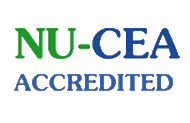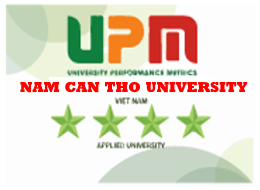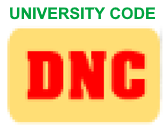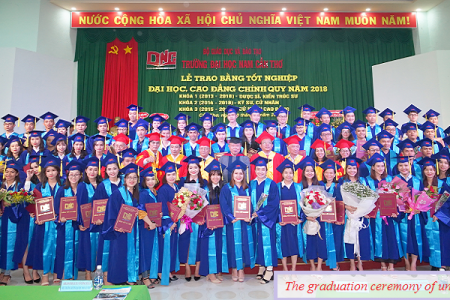Apr 20,2023
Regulations output standards of Medical imaging technology University degree
MEDICAL TESTING TECHNIQUES
1. Majors: Medical Testing Techniques
2. Degree training: Regular University
A. TRAINING GOALS
- General objective
The goal of the Bachelor's degree program in Medical Laboratory Technology is to equip students with the knowledge and capacity to meet the requirements of work in medical facilities and respond to the evolving epidemic situation. Possible complications, requirements of companies doing business in the field of medical testing, and training institutions can be attended at higher levels of a medical laboratory.
Learners who have completed the training program in Medical Laboratory Technology have good political and ethical qualities and comply with medical ethics; they possess a spirit of creativity, learning, responsibility to patients and society, and knowledge of the field of training in particular and the current development of the medical field.
2. Specific goals
M1. Understanding and being able to apply acquired knowledge to specific jobs in the field of Medical Laboratory with high applicability, innovative and creative thinking, and adapting to new situations and developments currently.
M2. Forming and developing professional working capacity at medical facilities, business companies, training institutions in the field of medical testing, and other places with applications in the field of training.
M3. Professional knowledge in the fields of Medical testing, and medical equipment to meet job requirements such as collecting, processing, analyzing samples, and interpreting test results. Capable of operating, maintaining, and maintaining equipment, procurement, and inventory of chemicals and equipment, ensuring safety and biosecurity in the workplace and the community.
M4. Knowledge related to the organization, performance of professional work, and quality management in medical facilities, cooperative units, and business establishments in the field of medical testing.
M5. Knowledge of problem solving, risk prevention, biosecurity, infection control, and troubleshooting and prevention of potential medical laboratory problems.
M6. Developing professional working skills, communication skills, teamwork, disease response, self-study skills, self-study in specialized fields, and being able to adapt to specific work situations.
B. OUTPUT STANDARDS
1. Knowledge
1.1 General knowledge
PO1: Understand and apply the basic knowledge of Marxism-Leninism, Ho Chi Minh Thought, the Revolutionary line of the Communist Party of Vietnam, Vietnamese law, and medical ethics in their profession and life.
PO2: Have the knowledge and ability to meet the requirements of work at medical facilities, business companies, and training institutions in the field of medical testing, and be able to pursue higher education and research in the field of medical testing.
PO3: Have professional knowledge in Medical Testing and medical equipment as the foundation for research in specialized fields of medical testing.
PO4: Have basic knowledge of laboratory quality management, biosafety, and infection control, and be able to apply that knowledge to practical work, as well as the ability to work in different positions in the unit.
1.2 Specialized knowledge
PO5: Demonstrate basic knowledge of theory and practice in the fields of biochemistry, hematology, microbiology, parasitology, molecular biology, etc. to work in various medical testing professions. PO6: Acquire knowledge of quality management methodology, risk prevention, biosecurity, infection control, and troubleshooting and prevention of potential incidents in the medical laboratory.
2. Skills
2.1 Specialist skills
PO7: Possess skills in collecting samples, analyzing and interpreting test results, operating, maintaining, and servicing equipment.
PO8: Possess skills to solve problems arising during the operation of work systems and equipment, to overcome and prevent problems from occurring.
PO9: Possess skills in inventory, procurement of chemicals and equipment, understanding of the medical device market, and knowledge of current legal documents.
PO10: Possess skills in planning, organizing, practicing, inspecting, and controlling issues related to quality management, testing, laboratory quality, and ensuring safety and biosecurity in the workplace and community.
PO11: Possess the ability to predict, analyze, evaluate, and make appropriate professional decisions in specific situations that need to be resolved in order to ensure professional work, patience, compliance with legal regulations, and coping with the complicated situation of the epidemic.
PO12: to think and Possess the ability to do scientific research, and work independently and in groups.
2.2 Soft skills
PO13: Các kỹ năng cá nhân: Kỹ năng quản lý công việc và thời gian, giao tiếp bệnh nhân và đồng nghiệp, làm việc nhóm, sử dụng ngoại ng và tin học thành thạo.
PO14: Khả năng nhận thức tầm quan trọng của các vấn đề, đảm bảo chất lượng xét nghiệm và y đức trong công tác chuyên môn.
PO13: Personal skills: Work and time management skills, patient and colleague communication, teamwork, foreign language proficiency, and computer proficiency. PO14: The ability to recognize the importance of problems, ensure test quality, and adhere to medical ethics in professional work.
3. Decision-making and responsibility
PO15: Confident in work related to medical testing, always cultivating knowledge, enthusiasm, passion, and creativity.
PO16: Obey the regulations of the state and the law, live and work responsibly with the community and society, adhere to medical ethics, and understand the role of the medical laboratory industry in the community to improve the value of life.
PO17: Dedication to the cause of protecting, caring for, and improving people's health, honesty, objectivity, and seriousness in professional work.



